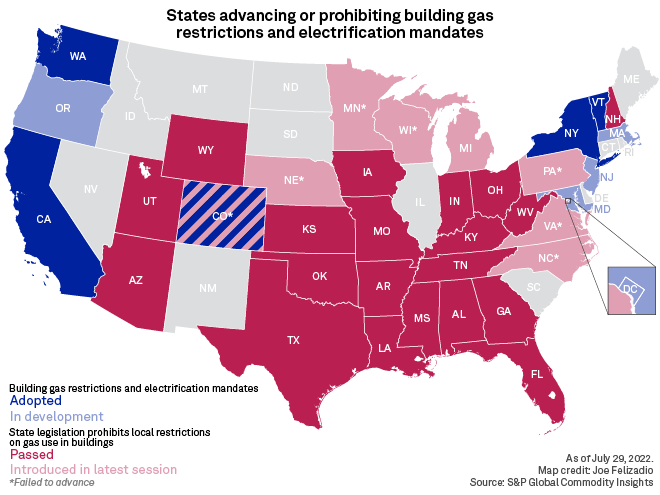S&P Global Offerings
Featured Topics
Featured Products
Events
S&P Global Offerings
Featured Topics
Featured Products
Events
S&P Global Offerings
Featured Topics
Featured Products
Events
Banking & Capital Markets
Economy & Finance
Energy Transition & Sustainability
Technology & Innovation
Podcasts & Newsletters
Banking & Capital Markets
Economy & Finance
Energy Transition & Sustainability
Technology & Innovation
Podcasts & Newsletters
S&P Global Offerings
Featured Topics
Featured Products
Events
21 Sep, 2022

By Bill Holland
Fourteen power companies and some of their key customers will coordinate their efforts to accelerate the international energy system's transition to full electrification, according to an agreement released Sept. 21 at Climate Week in New York City.
The accord was released by the Strategic Open Dialogue on Electrification and is supported by American Electric Power Co. Inc., Schneider Electric SE and State Grid Corporation of China, among others.
"We're not progressing fast enough," the members of the Strategic Open Dialogue on Electrification said in a statement with the agreement's release. "The pace of electrification needs to double — or more — over the coming decades to keep us in line with decarbonization goals" set forth in the Paris Agreement on climate change.
Natural gas excluded
Led by the Global Sustainable Electricity Partnership, the global coalition includes companies in the power sector and end users in industry, transportation and building. The agreement came together after a round of initial talks and includes few roles for natural gas in an electric future.
Natural gas utilities companies have long been opposed to climate change solutions that exclude gas. Forced electrification is bad for consumers and will result in higher bills and lower reliability while limiting any response to climate change, the American Gas Association, or AGA, said Sept. 21 after reading the electrification accord.
The industry has its own plans to reduce carbon and methane emissions while keeping natural gas in the mix.
AGA, the trade group for publicly owned natural gas utilities, earlier this year published its Net-Zero Emissions Opportunities for Gas Utilities. The report laid out four paths to both preserve a role for U.S. gas distributors and achieve global net-zero greenhouse gas emissions goals. The core tenets focused on curbing methane emissions from the gas system, pursuing energy efficiency in gas use, adding more renewable gas and hydrogen to the energy system, and developing and deploying emissions mitigation technologies.
Push for policy
Gas utilities and the electrification coalition agree that achieving emissions cuts will require policy support, although their policy focuses diverge from there. The companies supporting the electrification accord are seeking policies that would lower the initial, up-front costs for utilities and customers to speed up adoption of electric applications in lieu of gas ones.
The group also recommended updates to energy efficiency codes and electricity tariffs that would incentivize consumers to minimize net peak demand, among other things. At the same time, the electrification accord said information and data flows need to be restructured to account for electric power coming from a variety of sources, including rooftop solar, wind and combined cycle gas turbines, while being consumed around the clock.
The push for policy support comes not long after the Inflation Reduction Act allocated billions of dollars to building electrification and energy efficiency.
"Investment in infrastructure is of utmost importance to ensure the advancement of electrification," the agreement said. "Optimized investments in the grid increase the reliability, quality, and security of the energy supplied, whereas investment in industrial infrastructure can unblock bottlenecks in the uptake of electrification."
AGA has previously flagged the power generation and grid challenges of moving to an all-electric energy system. The group has specifically homed in on the potential need for more power generation to support winter electricity demand, which could require increased total generation capacity and could result in more natural gas-fired power plants remaining online and in use.
Electrification as a movement
The accord comes amid the growing movement by some states and cities to restrict natural gas use, especially in newly constructed buildings. Four states where policymakers have passed measures that restrict building gas use — California, Colorado, New York and Washington — accounted for 24% of the nation's residential gas use and 20% of its commercial gas demand in 2020, according to analysis of U.S. Energy Information Administration data by S&P Global Commodity Insights.
The electrification accord may seek to build on that momentum, even as some states push back against the spread of building gas bans and electrification codes.
The accord was billed as the starting point for future talks between the power companies and end-user groups, the global electric partnership said.

S&P Global Commodity Insights produces content for distribution on S&P Capital IQ Pro.
